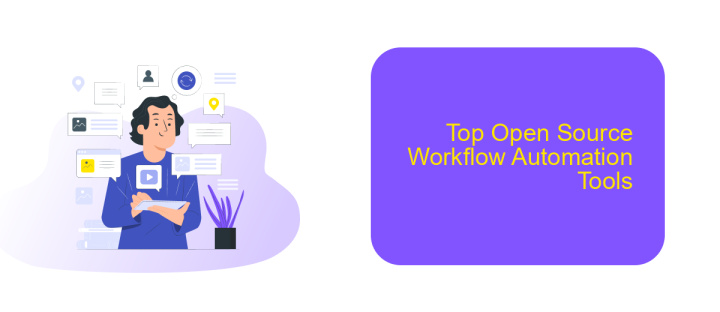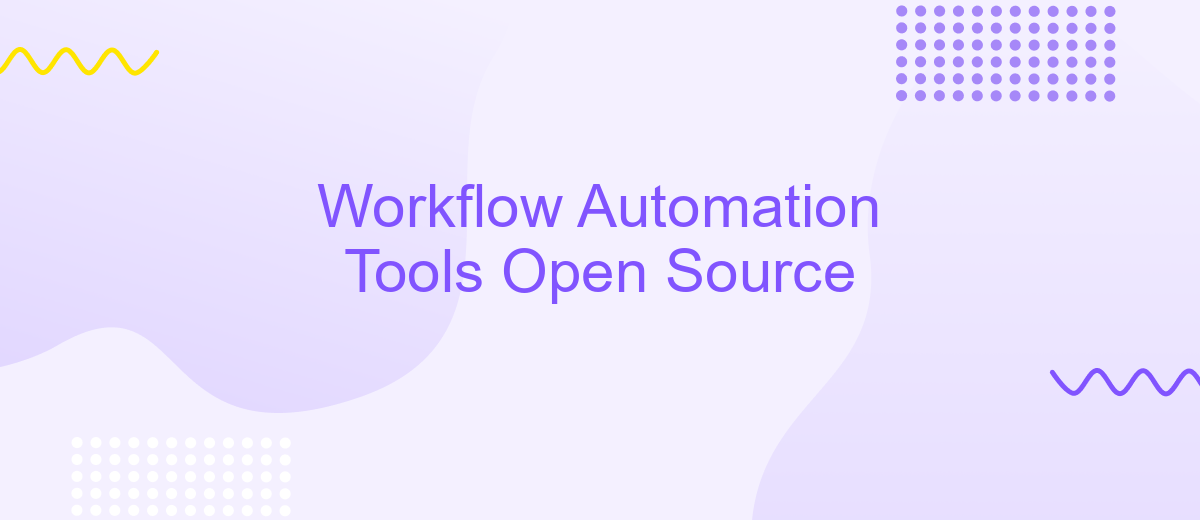Workflow Automation Tools Open Source
In today's fast-paced business environment, efficiency and productivity are paramount. Workflow automation tools have become essential in streamlining processes and reducing manual tasks. Open-source workflow automation tools offer a cost-effective and flexible solution, allowing businesses to customize and optimize their workflows without the constraints of proprietary software. This article explores some of the best open-source options available.
Introduction
Workflow automation tools have become essential in today's fast-paced business environment, enabling organizations to streamline processes, reduce manual efforts, and enhance productivity. Open-source solutions, in particular, offer flexibility, cost-effectiveness, and customization options that proprietary software often lacks.
- Cost savings: Open-source tools are usually free to use, reducing software expenses.
- Customization: Users can modify the source code to meet specific needs.
- Community support: A vibrant community often surrounds open-source projects, offering support and continuous improvements.
- Integration capabilities: Many open-source tools can seamlessly integrate with other software, such as ApiX-Drive, to automate workflows efficiently.
With the growing need for efficient workflow management, open-source automation tools have emerged as a viable option for businesses of all sizes. By leveraging these tools, organizations can optimize their operations, improve accuracy, and focus on strategic initiatives. Whether you are a small startup or a large enterprise, exploring open-source workflow automation solutions can bring significant benefits to your business.
Types of Workflow Automation Tools

Workflow automation tools come in various forms, each catering to different business needs. Task automation tools streamline repetitive tasks, allowing users to focus on more strategic activities. These tools often include features like task scheduling, reminders, and progress tracking. Examples include Trello and Asana, which help teams manage and automate their workflows efficiently.
Another type is integration automation tools, which connect different software applications to automate data transfer and processes between them. ApiX-Drive is a notable example, offering a user-friendly interface to set up integrations without requiring coding skills. This type of tool is essential for businesses looking to enhance their operational efficiency by ensuring seamless data flow across various platforms. Additionally, document automation tools like DocuSign help automate the creation, approval, and storage of documents, ensuring compliance and reducing manual errors.
Benefits and Challenges of Workflow Automation

Workflow automation offers numerous benefits, including increased efficiency, reduced errors, and cost savings. By automating repetitive tasks, businesses can allocate resources to more strategic activities. Additionally, workflow automation tools often provide better visibility and tracking, ensuring that processes are completed on time and bottlenecks are identified quickly.
- Efficiency: Automation eliminates manual tasks, speeding up processes.
- Accuracy: Reduces human error by standardizing tasks.
- Cost Savings: Lowers operational costs by reducing labor expenses.
- Scalability: Easily adapts to growing business needs.
- Compliance: Ensures processes adhere to regulatory requirements.
Despite these benefits, there are challenges to consider. Initial setup and integration can be complex and time-consuming. Tools like ApiX-Drive simplify this by offering easy-to-use integration solutions. Additionally, there may be resistance from employees who are accustomed to manual processes. Ensuring proper training and support can help mitigate these issues. Lastly, ongoing maintenance and updates are necessary to keep the system running smoothly.
Top Open Source Workflow Automation Tools

Open source workflow automation tools are essential for businesses looking to streamline their operations without incurring high costs. These tools offer flexibility, scalability, and the ability to customize workflows to meet specific needs, making them an attractive option for organizations of all sizes.
Many open source workflow automation tools are available, each with unique features and benefits. They help automate repetitive tasks, integrate various services, and improve overall productivity. Here are some of the top tools in this category:
- Camunda: A robust and flexible workflow and decision automation platform.
- Apache Airflow: A powerful platform to programmatically author, schedule, and monitor workflows.
- n8n: A workflow automation tool that allows you to connect different apps and automate tasks.
- ApiX-Drive: A service that helps set up integrations and automate data transfer between various applications.
- StackStorm: An event-driven automation platform that integrates with existing infrastructure and applications.
These tools provide the necessary infrastructure to automate complex workflows, reduce manual effort, and enhance efficiency. By leveraging open source solutions, businesses can take advantage of community support and continuous improvements while maintaining control over their automation processes.
Conclusion
In conclusion, open-source workflow automation tools offer significant advantages for organizations seeking to optimize their processes without incurring high costs. These tools not only provide flexibility and customization but also foster a collaborative environment where improvements and innovations can be shared across the community. By leveraging open-source solutions, businesses can streamline their operations, enhance productivity, and reduce manual errors.
Moreover, integrating these tools with other services, such as ApiX-Drive, can further amplify their effectiveness. ApiX-Drive simplifies the integration process, enabling seamless data exchange between various applications and systems. This ensures that all components of the workflow are synchronized and functioning cohesively. As a result, organizations can achieve a higher level of automation, leading to more efficient and reliable operations. Embracing open-source workflow automation tools, combined with powerful integration services, positions businesses to stay competitive in an increasingly dynamic market.
FAQ
What are workflow automation tools?
Why should I consider using open-source workflow automation tools?
What are some common features of workflow automation tools?
How can I integrate and automate workflows between different applications?
Are there any security concerns with using open-source workflow automation tools?
Time is the most valuable resource in today's business realities. By eliminating the routine from work processes, you will get more opportunities to implement the most daring plans and ideas. Choose – you can continue to waste time, money and nerves on inefficient solutions, or you can use ApiX-Drive, automating work processes and achieving results with minimal investment of money, effort and human resources.

